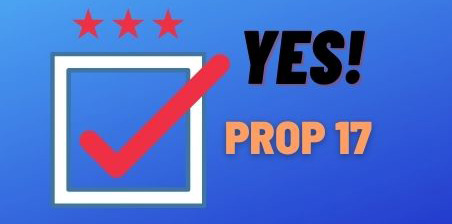
Prop 17: an end to discrimination
Californians will soon vote on Proposition 17, the controversial topic of whether to restore voting rights for the 50,000 people currently convicted of a felony and on parole.
As of now, California’s constitution prohibits felons from voting until after the completion of their imprisonment and parole sentence, a measure which was passed in 1974.
Meanwhile, those who are serving a sentence in county jail or supervised by county probation are allowed to vote unless they are transferring to a state or federal prison, or they are serving time for a parole violation.
According to an estimate from the Public Policy Institute of California, two-thirds of individuals on parole are Latino or Black.
Opponents of Proposition 17 believe that criminals should prove they are rehabilitated and fully complete their prison term, including parole, before they receive their right to vote again.
In addition, opponents argue that individuals on parole are not allowed to travel or choose where they live and as such, should not be trusted to vote as this right impacts the lives and finances of all.
Despite these arguments, citizens should vote yes on Prop 17 because it restores the rights to an underserved population.
The parole commission has found that felons who complete their prison term and have their voting rights restored are less likely to commit future crimes. It also strengthens their connection to the community, allows them to reenter society and removes the stigma from their past.
A “yes” on Prop 17 would also allow parolees to run for elective office, a right which any registered voter also possesses, so long as they haven’t been convicted of perjury or bribery.
If passed, California would join the other 17 states and the District of Columbia that already allow people to vote once they have finished their prison sentence. Vermont and Maine presently let people vote while they are in prison.
The fiscal impacts of this initiative if passed are an increase in annual county costs in the hundreds of thousands of dollars statewide for voter registration and ballot materials and a one-time state costs in the hundreds of thousands of dollars to update voter registration cards and systems.
Overall, parole is not a form of punishment and there is a lot of consideration taken into account before someone is granted this privilege.
If parolees are expected to become contributing members of society, they should be allowed to vote and participate in the democracy that is the U.S.